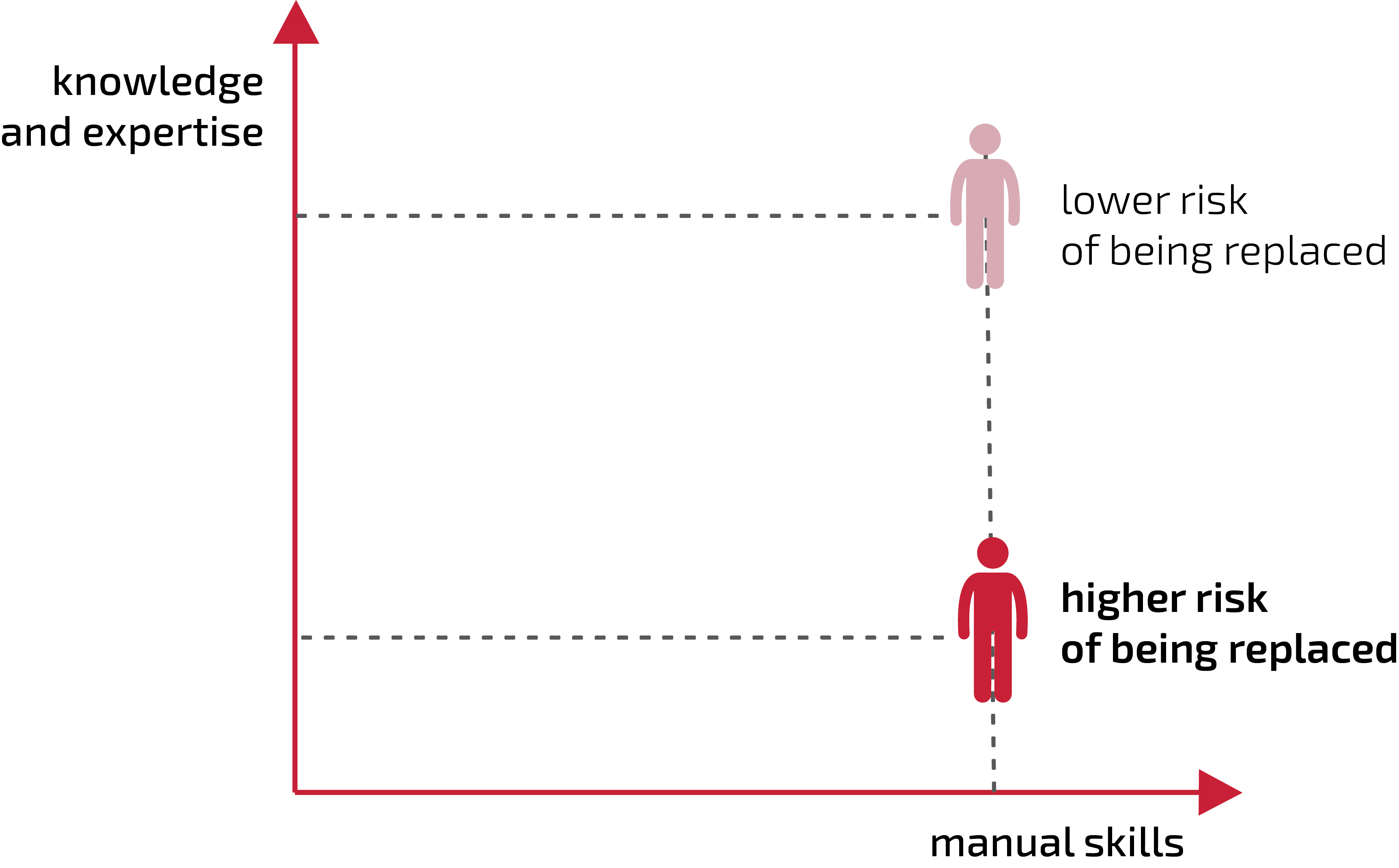The growth of the apparel sector in Sri Lanka has led to job polarization.
Our report ‘The opportunities and risks for achieving sustainable labour in a global value chain: A case study from Sri Lanka’s apparel sector” analyses the impact of the fourth industrial revolution on the industry. The study shows that as the apparel sector upgrades in response to ‘fast fashion’ trends, some low skilled jobs remain, while others are automated. Additionally, shorter lead times increase the stress factor of the job.
Highlights

The adoption of new technology at the global level impacts the labour market at the national level in Sri Lanka. Fast fashion trends and increasing access to capital have encouraged the growth of the manufacturing sector.
Between 2010 and 2017, the apparel sector doubled its export earnings without significantly increasing employment or wages. Between 2000 and 2014, the number of workers grew from around 250,000 to just under 300,000.
Increasing profits without a significant expansion of the workforce has been possible due to increased reliance on technology and automation.
Sri Lanka’s integration into global value chains has resulted in increasingly complex production methods, which require high-skilled labour.
Highly-skilled workers are sought for product development and innovation, marketing and management. These jobs are less likely to be automated. Also some low skilled jobs are not automated. This has to do with the constant evolution of the fashion world. It is a work that requires dexterity, as well as touch and feel, for evolving fashion trends.
Routine work – whether manual or cognitive – is the most vulnerable one to automation. Low-skilled, routine manual workers, who risk losing jobs, are left worse off. They lack the skills for alternative industries and lack support during an employment transition.



Karin Fernando
Senior Research ProfessionalKarin is a Senior Researcher at the Centre for Poverty Analysis (CEPA), where she leads their research on sustainable development. Her work focuses on generating evidence for policymaking and dialogue on sustainable systems.

Chandima Arambepola
Senior Research ProfessionalChandima is a Senior Researcher at CEPA, where she leads their research on labour migration. She is a regular contributor to Sri Lankan newspapers. Her research looks at the effects of government policies on male and female migrant workers.

Anupama Ranawana
Senior Research ProfessionalAnupama is a Senior Researcher at CEPA and co-leads their social cohesion research. Her research examines areas including climate change, transitional justice, peacebuilding and reconciliation, and postcolonial approaches to political economy.

Navam Niles
Research AssociateNavam is a Research Associate at CEPA. His research currently focuses on climate change, the SDGs, institutions, energy, security and development management within the context of international politics.
